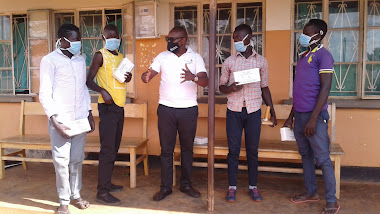Men Accelerating Maternal health and Quality life through Family Planning. A strategy to reduce the unmet need to 10% and increase the CPR to 50% by 2024.
Despite the corporate efforts by different key players in the health sector including frontline health workers, government, ministry of health, individual organizations and activists in a bid to promote and improve resilience of the health sector in matters related to family planning, a systematic study was carried out to diagnose the underlying challenges and needs of the sector. The study unveiled that there are health needs regarding family planning that still need to be addressed, and these constitute 28% of unmet need though other reliable sources in the health sector report that the unmet need would surpass the above percentage if all regions across the country were probed. This is a fundamental flaw which imposes a big threat to the social - economic development of the country.
One of the best approaches to address the above stated unmet need and challenges overwhelming the social health and economic sector at large is by promoting male involvement in reproductive health matters. But we realize that the source of the problem is twofold based on the following convictions:
👉 There’s no democratization in ensuring proper dispensation of reproductive health services to the spouses. It’s noticeable that there’s consistent lack of male engagement in pursuit of best family planning practices and critical health decisions in coordination with their female partners.
👉 Communities especially in the remotest parts of the country still have a negative mentality and unjustifiable misconceptions about the recurring side effects and consequences characterized by some of the family planning practices.
These therefore, constitute some of the barriers to effective implementation of family planning and reproductive health practices among many communities in Uganda.
The bottom line is that family planning setbacks indiscriminately affect all categories of people irrespective of their social-economic backgrounds, nobody is immune from these gross reproductive health challenges; surprisingly, SAI’s steering team spotted a significant number of elites who were decrying the outcomes of lack of adequate knowledge to effectively deal with matters related to family planning. This has accelerated domestic violence, family disintegration and gender based violence crimes in the country.
Did you know that active involvement of males in making reproductive health decisions and supporting their spouses to adopt the recommended family planning practices especially in rural setting would catalyze change and improve quality of life among many households in Uganda?
Or Did you know that empowering Men to be at the fore front in championing and advocating for adoption of family planning could reduce sexual gender based violence threefold than ever before among our communities?
Or Did you know that once Men are sensitized about family planning and the significance of supporting their partners in matters of reproductive health, would mitigate maternal mortality rate, conjugal conflicts, increase household peace and stability, and perpetuate harmony among couples? It would provide a prolific ground to flourish happiness among their children hence enhancing their quality of life.
More so, have you ever pondered and realized that a female partner could never have two pregnancies in a period of 16 months? But what about a male partner? Do you discern that a man can produce over 12 children a year from different sexual relationships? Then agree with me that since its inception to regulate child birth, Family Planning targeted the wrong gender, and this is an absolute truth that can’t be subjected to scrutiny and further analysis!
Factually, this explains why MEN should always be at the fore front in the matters related to reproductive health. We would leverage our reproductive health interventions especially in regard to matters pertaining family planning if the joint efforts of all stakeholders in the health sector were preferably centered on male engagement and empowerment.
At SAI, we dive into reproductive health programs that bring males on board and actively engage them to be the champions of a fundamental change of many livelihoods and communities. We fervently believe, if men were equipped with effective tools through training in maternal and child reproductive health, it’s irrefutable that they would be pivotal in counteracting the healthy challenges which are prevalent in many homesteads. They would be both change agents and change catalysts, as well as role models tasked and motivated to modify their families, and neighborhood. That’s what gives credibility to our work and reflects a sense of uniqueness, and responsiveness.
If MEN are empowered in matters related to reproductive health, we shall hardly experience an upsurge of maternal and child mortality rates. Households will always jubilate without collisions ignited by pervasive behaviors and life will take a new twist with restoration of harmony among all family members!







Comments
Post a Comment